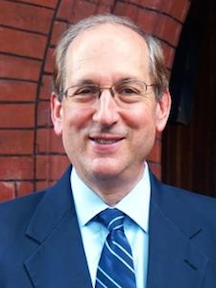The liberal arts and sciences are the most practical course of study for a student today. I know that may sound oxymoronic to some, but I am not being ironic in the least when I present the pragmatic case for liberal education. In my past Secretary’s columns, I have written about two of the greatest benefits of pursuing the liberal arts: preparation for a meaningful life and for a productive life. This column addresses a third: preparation for an engaged civic life.
We are just a month past one of the most momentous mid-term elections in recent history. My impressionistic sense from my travels to many campuses this fall—that liberal arts students are deeply engaged in the politics of our time—is borne out by studies about the linkage between a liberal arts education and civic participation. Of course, there is much more we have to learn about these linkages, and we must always be wary of the difference between correlation and causation. Nonetheless, there are important observations to share.
The first concerns voting rates among young people. In the 2016 presidential election, voting rates among 18- to 29-year-olds trailed that of all other age groups in the electorate. Moreover, voter turnout among Americans ranks 26th out of the 32 countries in the Organisation for Economic Co-operation and Development. In the face of these trends, it is instructive to know that higher education has an important positive effect. Higher education increases volunteerism, political knowledge and participation, electoral turnout, and democratic attitudes. In the 2016 election, among those with post-secondary education, students in the social sciences and humanities had substantially higher voting rates than students in other majors. Over all, the trend is clear. Political theorist and Harvard Professor Danielle Allen (ΦΒΚ, Princeton) put it well: “Importantly, level of education is an even stronger predictor than income of whether one will vote on Election Day.”
When we broaden the lens beyond just voting, we see the importance of the liberal arts for civic engagement. Richard A. Detweiler, President of the Great Lakes Colleges Association, found that students who participated in philosophical or ethical discussions in college and took ample humanities classes were “more likely than others to volunteer, give to nonprofit groups, and become otherwise altruistic.” Greater familiarity with literary fiction correlates with a stronger ability to understand others’ thoughts and feelings. As literary critic and Yale Professor Harold Bloom (ΦΒΚ, Cornell) once described it, “We read imaginative fiction because we cannot know enough people.”
Close faculty interaction and especially out-of-the-classroom discussions with faculty members (both on academic and nonacademic subjects), so characteristic of liberal arts education, have been shown to have a great impact on leadership later in life and in contributing to society—engagement, volunteering, charitable giving, and the like.
A free and self-governing people require engaged and informed members of society. For this project, the liberal arts education that has been celebrated by Phi Beta Kappa since the founding of our self-governing republic in 1776 remains absolutely essential.
Frederick M. Lawrence
Secretary and CEO




